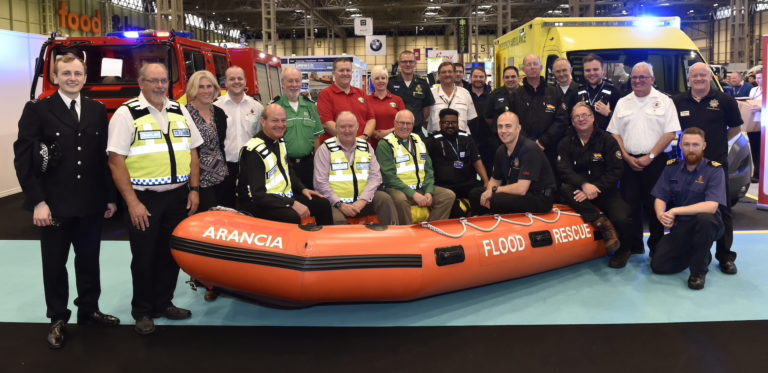
Today, almost 2 million people (including 250,000 first responders) work and volunteer across the NHS and emergency services. Each and every one of them plays a crucial role in protecting the public and saving life and property.
Until COVID came along, the UK had seldom paused and reflected on the role of the NHS and emergency services, and the sacrifices that those who serve make to keep us all safe. This despite the overwhelming majority of the public either knowing somebody who has worked in or had their life saved by the emergency services.
Our national focus has been on the armed forces, and without wishing at all to downplay the role and value of our armed forces – not least because I come from a military family and am a very vocal advocate for the work they do – we have failed to ensure those who work and volunteer in the emergency services and NHS are treated as equals in the national mindset.
The UK has had a national Cenotaph since 1920 and an Armed Forces Day since 2009, yet there has never been an Emergency Services Day or a 999 Cenotaph to honour the millions who have served and the more than 7,500 emergency personnel who have died as a result of their duties.
The UK only started having an Emergency Services Day (9th September each year) in 2016, after I founded it and secured the support for it to be a national annual day from the then Prime Minister. It now has the support of HM The Queen, HRH The Prince of Wales and HRH The Duke of Cambridge.
Plans for a 999 Cenotaph are now well underway with a fundraising effort to raise the £3.2 million needed. The 999 Cenotaph has the support of HRH The Duke of Cambridge.
The 999 Cenotaph will bring the NHS and 999 services together with six figures representing the different services stood back-to-back and wearing the uniform worn when responding to a 999 call. It will be a national monument which honours our 999 heroes, and which they can look at and be proud of.
We take the emergency services for granted. We all know that help will come when we dial 999. Unfortunately, people fail to pause and think before dialling those three digits.
The overwhelming majority of the work that the emergency services do isn’t glamorous, and it doesn’t make the news, but it is the difference between life and death.
Those who have put on a uniform and gone out on duty know that when you deal with a call it doesn’t end when you close the locker door at the end of your shift. You go home and it plays on your mind as you analyse it or think about the victim or indeed the suspect.
I want to use the work we are doing both at the 999 Cenotaph charity, and with the annual 999 Day, to shine a light on the work our emergency services and 999 charities are doing, and to promote greater understanding of the sacrifices 999 personnel make – sacrifices such as the impact on physical and mental health.
You can find out more about the 999 Day by visiting www.999Day.org.uk and follow us on social media @999Day
You can find out more and donate to the 999 Cenotaph by visiting www.999Cenotaph.org.uk and follow us on social media @999Cenotaph
Article written by Tom Scholes-Fogg and published on 30 March 2021 internally – CE Met Police Magazine.